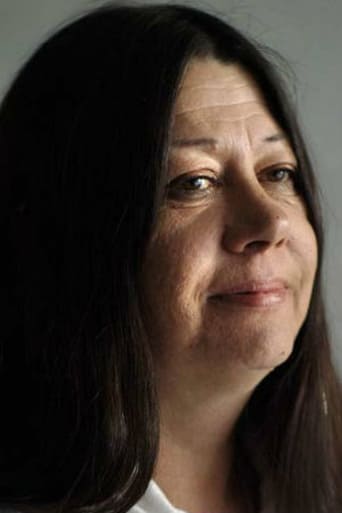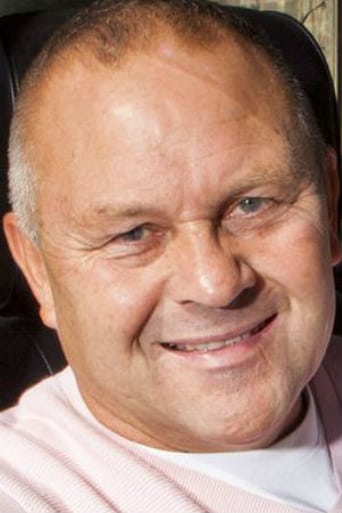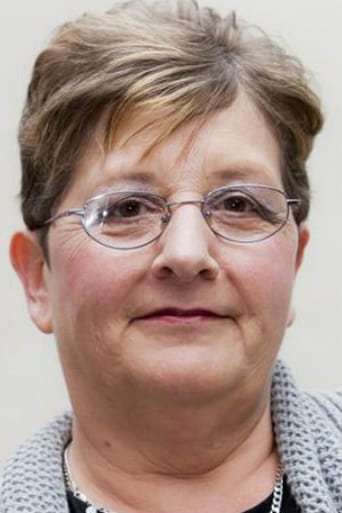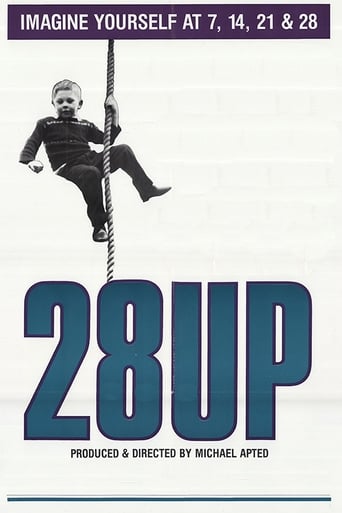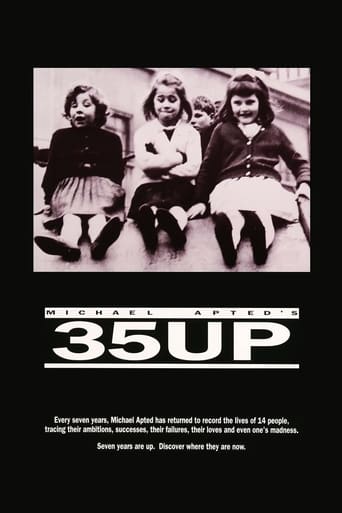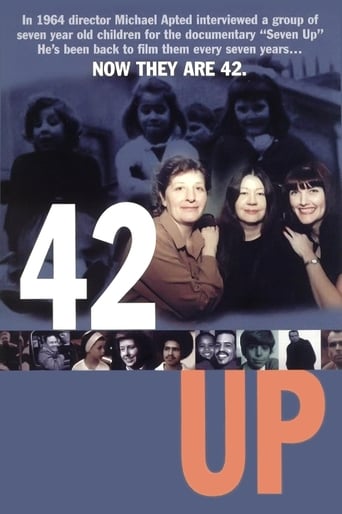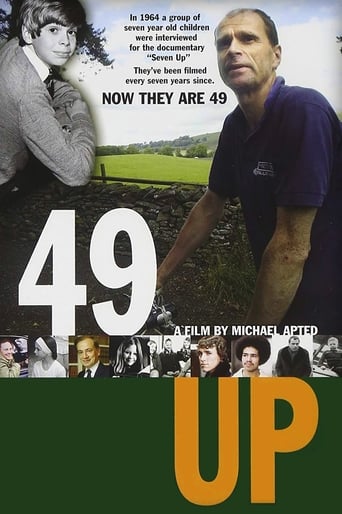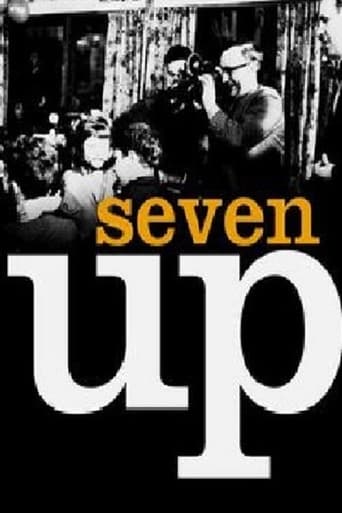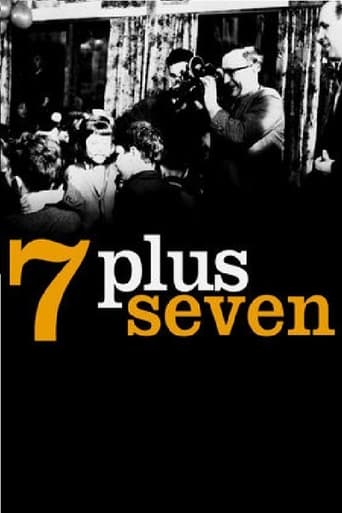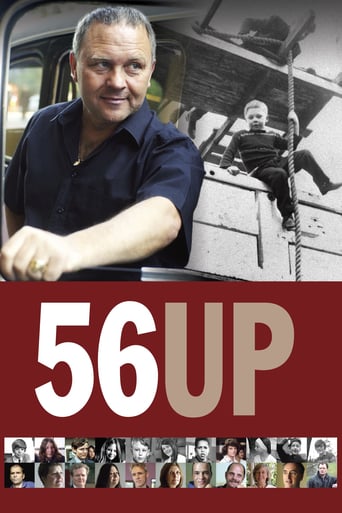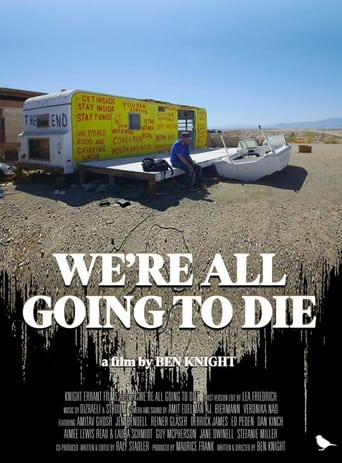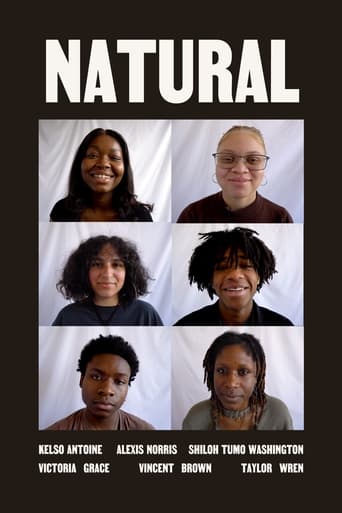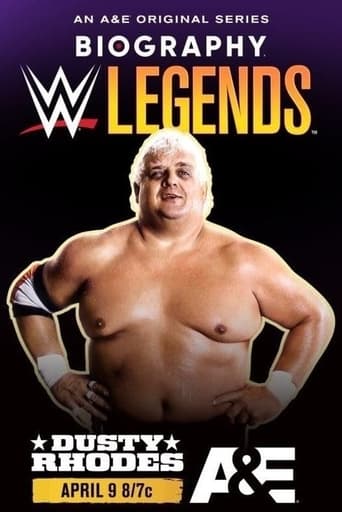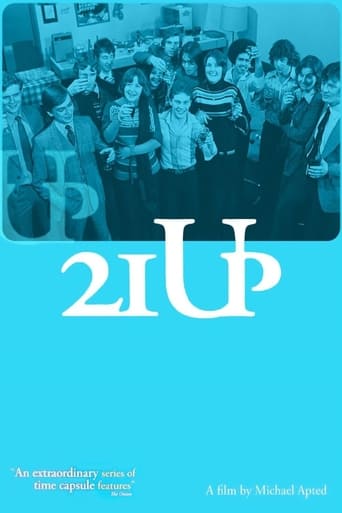
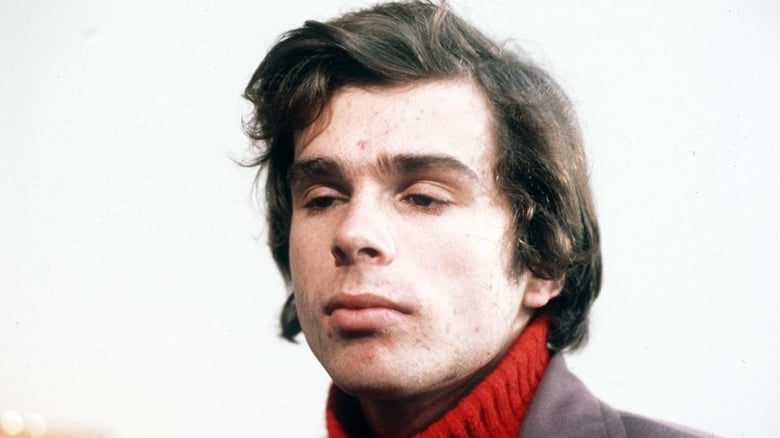
21 Up (1977)
After another 7 year wait, director Michael Apted revisits the same group of British-born children from Seven Up! and 7 Plus Seven. The subjects are interviewed as to the changes that have occurred in their lives during the last seven years.
Watch Trailer
Cast


Similar titles
Reviews
I saw "49 Up" first, and that's what made me decide to see the series from the beginning. I enjoyed seeing them as 7 and 14 year olds. This film was interesting, except I thought Apted's emphasis towards the man who wanted to become a missionary at 7, and who's Dad lives in Rhodesia (sorry, I forget his name) was an editorial mistake, and slowed the film down, and made that part of the film quite boring. Apted spent an inordinate amount of time on this guy, and I have no idea why. It's of course a subjective thing, but I think we were supposed to find him interesting, and I couldn't see why.Neil of course is the most compelling person to observe and see grow. An extremely sensitive guy, and I don't say that disparagingly. As I already saw "49 Up," I know what happens to Neil and the stuck-up little rich girl (again, I forget her name), so it's all very interesting to see what they were doing at that age.Onto "28 Up"!
My situation: an American watching these as films rather than TeeVee, and in sequence. I am at the leading edge of the postwar baby boomers and the people profiled here are the tail of that bulge.So my perspectives are quite different than the audience this was created for, at least through this third installment. England before the war was the most classbound society in Europe, which is to say the then modern world. They really came close to extinction during the war and in their own minds at least won because every citizen set aside every social convention and pulled together as a collective. A new notion of nationhood was hovering over the isle, one modelled after America, that former colony who bailed them out, funding them during the war effort at several times their national product.After the war, the national will was to restore British society, but the question was to what? When this was made, there was extreme introspection as to what the nature of the British (I should say English) nation should be. No nation is as publicly introspective in their art as the English. So it is no surprise that we see this in British films, from here all the way to "The Queen," which I saw recently.So. Pick 14 children. No immigrants. No non-whites, the residue of empire. Allow one child who we only learn in this edition, has a white, "purely English" mother, the father being completely out of the picture. Start with the premise that despite some modernization, England's rigid caste system is back as Strong as ever. Pick kids from different classes. Say over and over that their lives are determined by the age of seven.Start.I have no idea how far Aptet wanted to take this. It seems clear that he intended at least one followup to the interviews at seven. In this film, our subjects are 21. I expect Apted to develop more subtle richness in his perspective as he goes. After all, he will be growing and who has seven years to think about the next layer of pats work, each layer sort of reinventing the earlier ones? I do expect him to evolve, but he hasn't yet. He is still banging on one theme, that of class.Our three lower class girls are obviously stuck, doomed. Our upper class girl is a mess; for all I know she will self-destruct but do it with creature comforts handy. Our three upper class boys are amazingly repellent in different ways and I suppose that is the point.In between, we have a smattering of individuals, all challenged, all developing into fascinating stories that carry meaning far beyond that of any individual. I wonder why I like this so.I think there are three reasons. One is that I watch a lit of movies, some with actors that with support can create reality. But even the best of these fades when confronted with real reality. These kids are tender, not professionals. Their stories are real. We only glimpse, and because we know how full each day in our own lives are, we fill in behind what we see: pains and joys, many, many disappointments. Loves.This is helped immensely by a basic choice Apted has made. He's decided to give us real people with real lives that we know could only be narrated by giving us the entire seven years. Its an open world he is giving us. But he has stuck to closed world narrative conventions. The only parts of the story we learn about any of these people is 1) what we saw in previous installments, generously replayed and 2) what our heroes and heroines choose to tell us in their own words.The power of constraining the narrative this way is immense, a terrific decision. Apted rarely (it seems never) tells us for instance that so and so had a drug problem, had two abortions and so on. If the people themselves don't tell us, we don't know. I am in awe of this decision and wonder how it will play in future installments. Surely he has tons of footage that he didn't use in the earlier films that would be insightful; but if it wasn't actually broadcast, it doesn't exist.So part of the thrill here is in watching the filmmaker's shaping of the narrative, because of course he is asking the leading questions, weaving what we get from what happened.But there's another soap opera at work here. I mentioned that I am an American, someone who finds notions of class quaint, puzzling, offensive, illogical. So while I watch what amounts to a soap opera of 14 lives, and I watch the way a strictly cinematic story is pulled out of them, I also watch the soap opera of an alien people try to preserve these social anomalies because their person story is tied to their national one. And this interstory story is close to what life is about.Ted's Evaluation -- 3 of 3: Worth watching.
Here, the Up series began in earnest. "Seven Up!" and "7 plus Seven" were shorter, and the interviewees, naturally, didn't have much of interest to say. Listening to what silly things cute children have to say doesn't make for a very serious or interesting documentary. The interviews at 14 weren't of much initial value, either, especially with the shyness of two of the participants. Yet, I did enjoy listening to and contrasting the political ideals of young socialist Bruce and conservative John, as well as contrasting their manners. The first two segments do gain importance and value, though, with this and the following installments, as parts of them are intercalated with the new interviews. It's not even necessary to see previous Ups, as a result; each of the latter documentaries stands well on its own.At twenty-one, the subjects are now young adults and are naturally more insightful, reflective and, importantly, more articulate. Here, as well, Neil had taken shape as the most compelling figure in the series; he is now melancholic, nervous and poor. And, in this episode, he is bitter when discussing his parents and upbringing. With the other participants, I saw confidence and contentment, especially compared to when they were teenagers, even if they were uncertain of their futures--or chain smoking.What Michael Apted and the filmmakers did with the film that I especially liked was that they brought the gang together to watch the previous two films and caught their reactions to the films and asked them their thoughts on the series. Generally, it seems, they don't see the importance or purpose of the series; perhaps, they even see it as somewhat of an intrusion. I suppose I wouldn't see the purpose or significance of the first two films, either, without having seen "21" and the subsequent films that aggrandize upon their beginnings; it's the subsequent films that give the previous ones significance. As far removed or alienated as one seems at twenty-one from his seven-year-old self, the Jesuit proverb still holds truth, as Apted discovers.Early in the film, Neil says that by bringing the group together, the filmmakers might be defeating their original purpose of examining class, or socioeconomic, barriers. And, that focus does seem to be forgotten at times in this addition, although, I suspect, for different reasons. Not only has the series taken on more significance than its initial intent, but also, the interviewees are now more concerned with themselves; even on their pasts, there is more reflection and insight. They're looking inward, planning and thinking about their futures and thus looking forward.
What a wonderful series of films! The 'Up' movies are certainly the most interesting documentaries I have seen. Fourteen people from Britain being interviewed every 7 years of their lives on topics as far ranging as education, marriage, politics, and class. I'm not sure what rewards these individuals find in participating in the documentaries, however I find them very generous in sharing themselves so openly with the world.21 is perhaps the least interesting of the series. That is not much of a slight considering how exemplary the whole series is. Myself, I voted a 9 for this instalment. 21 suffers from the uncertainty and guardedness that many of the participants seem to be feeling at this age. Many are just finishing their schooling. They are unsure of what they should do next. They lack the distance from their education to make a clear judgements about it. Most have not yet entered a long term relationship or had children. Perhaps the director could have used this state of transition better and improved his film slightly. However, these complaints are small.21 is significant in that all the individuals are still participating in the film. Seven years later, in '28 Up" the first two people will drop out. As well, at the age of 21, the interviewees are more articulate, thoughtful, and independent then at previous ages.The theme of the documentary continues to be an investigation into 'class mobility'. Personally, I enjoy watching these people, who are much older then myself, grow up. All change, and yet very few stray very far from who they were at the age of 7. The shy 7 year old girl is a quiet 21 year old. The outgoing and direct 7 year old boy is the same at 21.While all the characters in these films are so very interesting (mostly because of how real they all are), three stand out for me: John - a self-assured upper-class individual who has is very sure of his beliefs despite how harsh they sometimes come across as being. It is a shame he did not participate in several of the following documentaries. He seems to suggest he feels the films do not portray him fairly. This is a fair complaint considering the interviews only occur every 7 years leaving a lot of living off screen. It would be very interesting to see how he changes as he experiences life.Tony - who is so direct. Tony sets a goal and goes off to achieve it. Of the people being interviewed he often seems to be the most happy because, well, he just chooses to be happy and satisfied with what he has.Neil - perhaps Neil is the most interesting character. At 7 he seemed so bright and happy. Yet at 21 he is a squatter. Nick's journey, particularly in the next 2 films, is the most interesting. He is the character who stays with you the longest and most clearly.Overall, 21 is another wonderful film in a great series. It can not be recommended enough!


